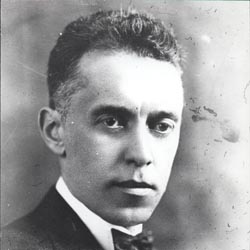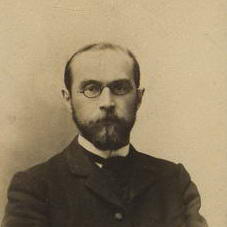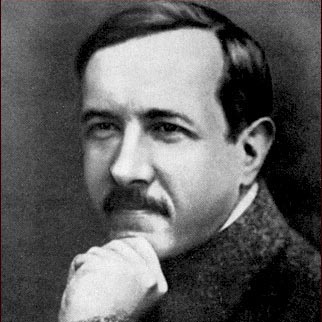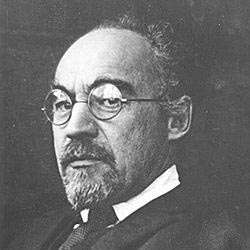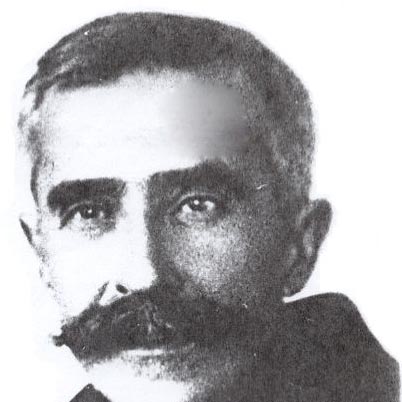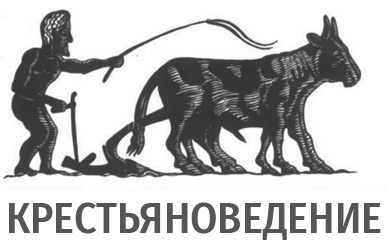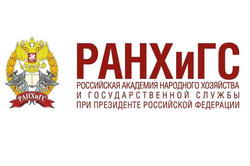N.P. Makarov
Nikolai Pavlovich Makarov (1886-1980)
Bibliography of works about N.P. Makarov
Makarov was born on December 20, 1886, in Kharkov, in a large family by city standards (he had a brother and three sisters), and his father was an employee of the Danilov Manufactory. The years of study in the secondary school were the time of his personal formation with an active life position. In his memoirs, he wrote about reading the works of K. Kautsky and K. Marx, youth clubs of the Kharkov Committee of Social Democrats and his speeches. Professors N.A. Kablukov and I.M. Goldstein were Makarov’s teachers at the Department of Economics of the Law Faculty of the Moscow University. In 1907, Makarov interrupted his studies to take part in helping the starving people in the Ufa Province, after which he decided to devote his scientific and professional life to the agricultural economy. In the summer of 1908, Makarov took part in the statistical study of the Kostroma Province. In 1909, the ungraduated economist published his first work Peasant Cooperative Movement in Western Siberia. After graduating with the first degree diploma, Makarov was invited to stay at the university for scientific work and preparation for a professorship, but in 1911, due to the repressive measures of the Minister of Education L.A. Kasso Makarov left the university. In 1911-1914, he served in the army and worked in the Statistical-Economic Bureau of the Moscow Uyezd Zemstvo. In these years, he published Credit Cooperation in the Moscow Uyezd (1912) and Dairy Cattle Breeding and Peasant Economy in the Moscow Uyezd (1913), his scientific interests became similar to those of the agrarian economists Chayanov and Chelintsev (also Makarov was a classmate and friend of Rybnikov). In June 1914, the Main Department of Land Management and Agriculture appointed Makarov a teacher of the Department of Political Economy and Statistics of the Emperor Peter I Voronezh Agricultural Institute, and from 1915 to 1918 he was the Head of this department.
In 1917, Makarov moved between Petrograd and Voronezh. After the February Revolution, instead of the director and his deputy appointed by the ministry, the staff of the Voronezh Agricultural Institute chose a board with Makarov. In his speech at the I Voronezh Provincial Peasant Congress (April 8-12), he proposed to establish a Peasant Union in the province. The congress approved the proposal and decided to borrow the program of the Union from the Party of Socialist Revolutionaries. At the same time Makarov worked in the Main Land Committee and in the Department of Agricultural Economy and Policy of the Ministry of Agriculture of the Provisional Government.
The scientific views of Makarov in this period are presented in his work Peasant Economy and Its Interests. In 1918, Makarov completed his thesis Peasant Economy and Its Evolution, but the defense was cancelled by the special decree of the Council of People’s Commissars, and the Scientific Council of the All-Russian Agricultural Institute awarded Makarov the title of professor. In 1918-1919, he taught at the Moscow University and Cooperative Institute.
In September 1919, thanks to his authority among cooperators, Makarov was offered a business trip to Siberia and then to the United States to study the activities of the board of the Union of Siberian Integrated Credit Unions (Syncredsoyuz) and the state of the Siberian credit and production cooperation. The Union had offices in Novonikolaevsk (Novosibirsk) and New York. After a risky journey through Siberia, on February 27, 1920, Makarov arrived in Harbin and then went to Vladivostok and America. Due to the refusal of the Siberian Cooperative Mission in the United States to finance his business trip, he had to earn money by giving public lectures at the People’s University and by editing articles in the Department of Agriculture of the Publishing House of the Christian Union of Young People. Before leaving Makarov wrote the manuscript Economic Foundations of Cooperative Union, the fate of which is still unknown.
In the United States, Makarov made many trips to agricultural regions, wrote the popular-science work How American Farmers Organized Their Economy and the brochure Conditions and Limits of the Use of Tractors in the American Agriculture that was published three times in Moscow in 1922-1924, and completed the work Grain Economy in North America published in Moscow in 1924. In mid-June 1922, Makarov moved to Europe, where he lived for two years – first in Czechoslovakia and then in Germany. In America and Europe, Makarov studied the economy, organization and technology of agricultural labor, which resulted in the repeatedly reprinted textbook Organization of Agriculture published first in 1924 in Berlin
After his return to the homeland in June 1924, Makarov was offered the position of the Head of Agricultural Planning Department and then of the Dean of the new Faculty of Economics of the Timiryazev Agricultural Academy. He also worked at the Research Institute of Agricultural Economics and People’s Commissariat of Agriculture.
The year 1927 marked the forty-year milestone in the life of Makarov and a milestone in the agricultural policy of the USSR. Makarov tried to justify the need for the transition to the large-scale mechanized agricultural production and machine-tractor stations, which became the focus of the new edition of his course Organization of Agriculture (1930). From this moment, all his works considered the organization of large agricultural enterprises.
In the summer of 1930, together with many colleagues Makarov was arrested and on January 26, 1932, by the verdict of the Board of the United State Political Administration he was sentenced to 8 years in prison. In 1932, at the request of N.I. Vavilov and G.I. Lomov Makarov was partially amnestied. His term in the Yaroslavl Political Isolation Ward was reduced to 5 years. When in exile in 1935-1947, Makarov worked as a planner-economist and agronomist at different state farms of the Voronezh and Rostov Regions. In January 1948, he was offered the position of the teacher at the Department of Economics and Organization of Agriculture of the Voroshilovgrad Agricultural Institute. He also returned to the scientific work – the study of economy and organization of agriculture in the Donbass. In May 1956, in Kiev, he defended the doctoral thesis on these issues, which was later published as a book. The last place of his teaching was the All-Union Correspondence Institute of Agriculture in Moscow. However, Makarov continued scientific research after retirement. In 1976, he published Industrialization of Socialist Agriculture, and his manuscript Agriculture on the Path from Capitalism to Socialism was not published. Makarov died on October 1, 1980 at the age of 93, and he was fully rehabilitated together with other economists of the organization-production school only in 1987.



